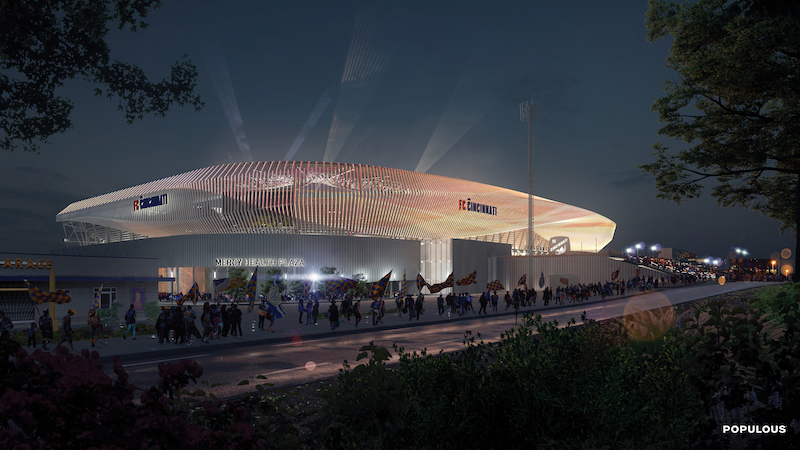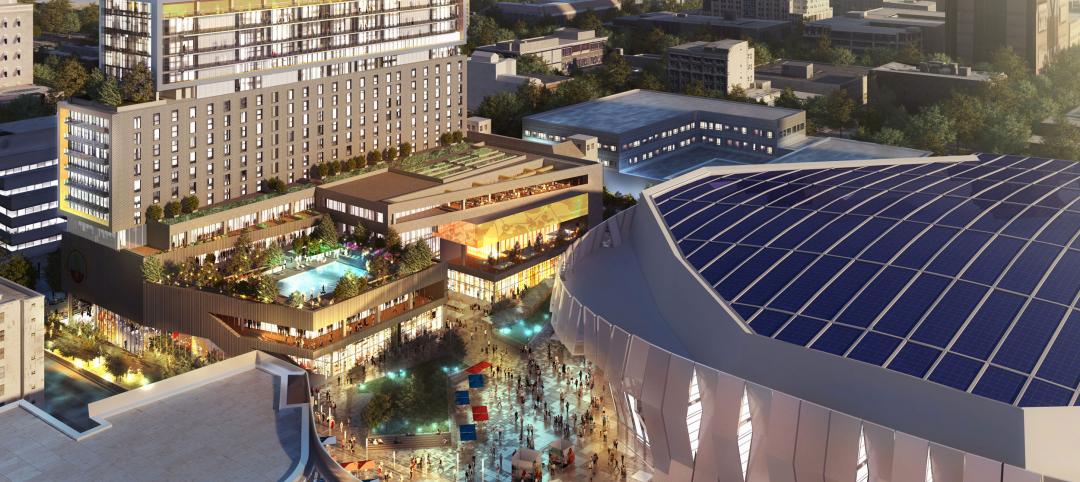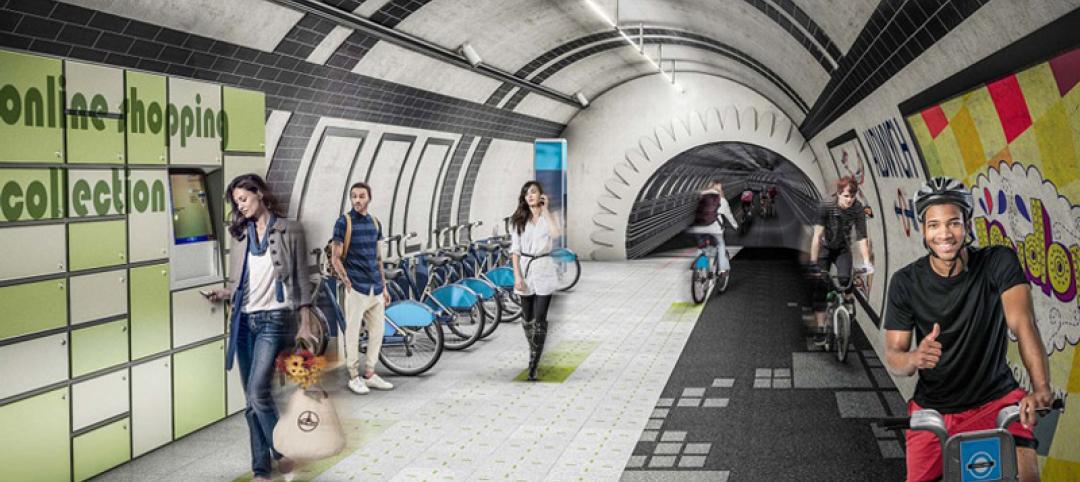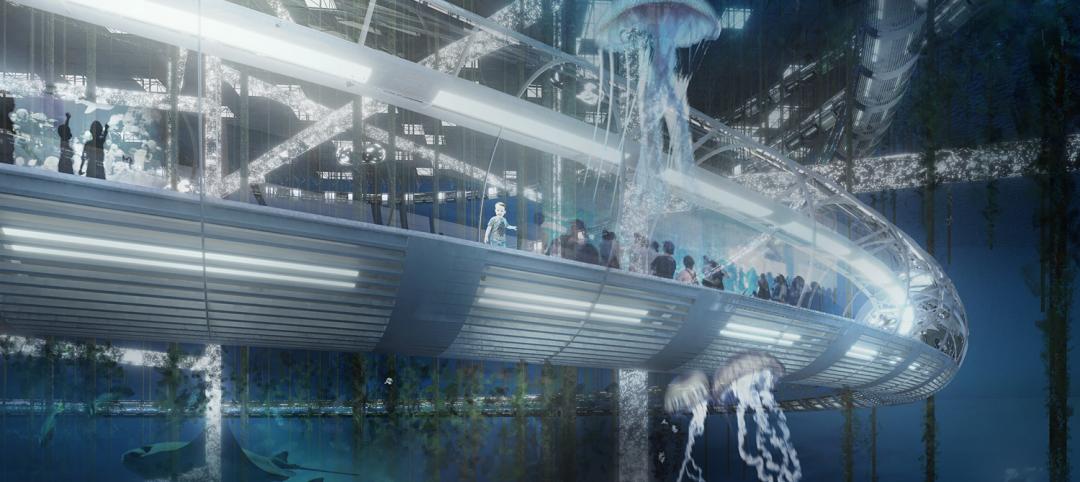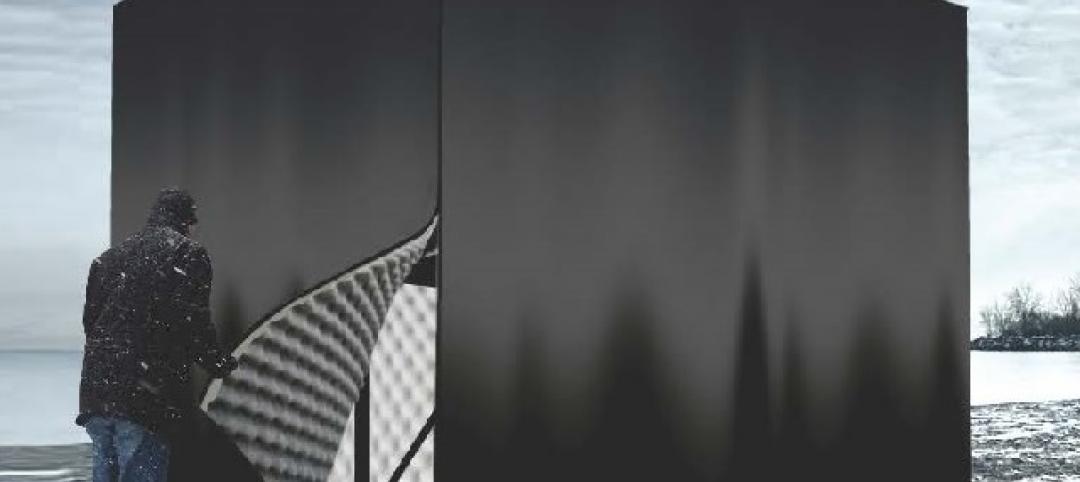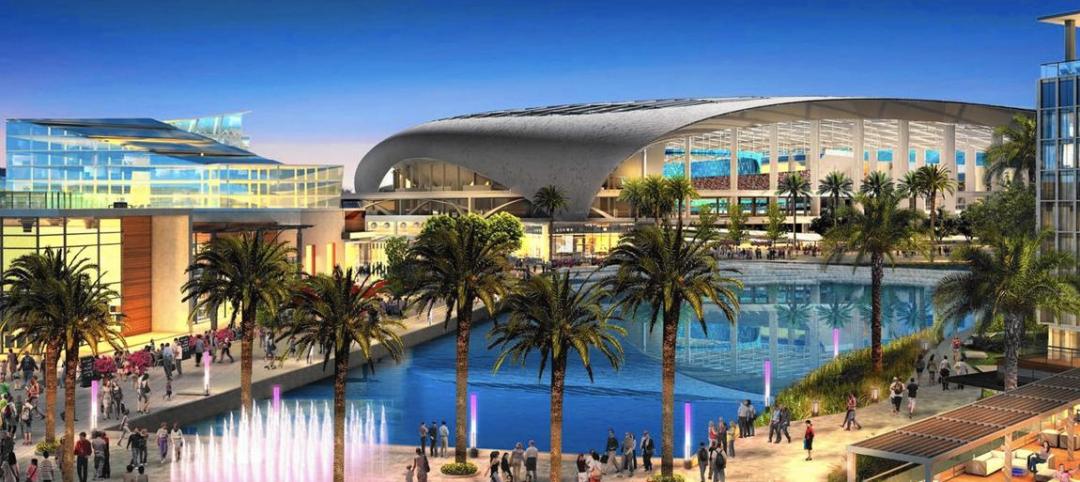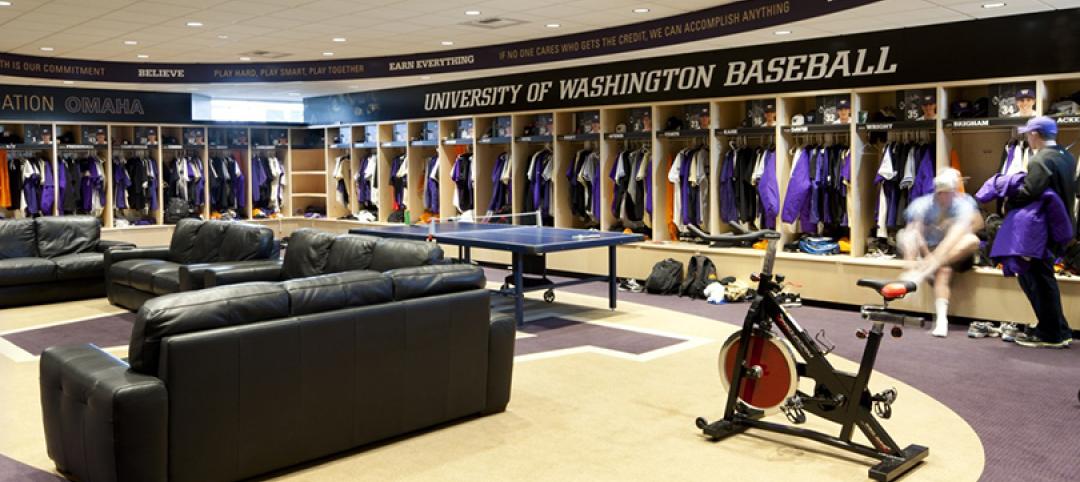West End Stadium, the future home of FC Cincinnati, was recently unveiled by the team’s ownership group. The $250 million, Populous-deigned stadium will feature “an interpretation of Cincinnati on the rise.”
The stadium will have a final seating capacity of between 26,000 and 26,500 with a 360-degree canopy roof that will cover every seat in the stadium. The stadium’s exterior will feature 513 vertical fins that form a wave-like external structure and enclose the stadium. Custom LED lighting on each fin will help the stadium appear to glow when lit for evening events.
The fins will each have custom LED lighting and a lighting system that will allow for unique motion sequences to be displayed on the stadium’s east-facing façade. The western façade will have a more traditional glass aesthetic to smooth the transition into the surrounding neighborhood.
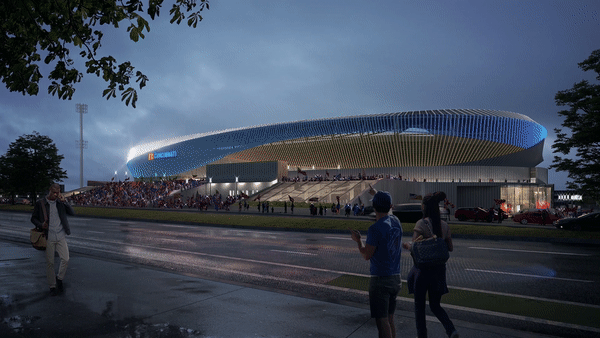
The 26,000+ seats will be arranged around a 110-yard by 75-yard field, with 4,500 of the seats being labeled as “premium” and another 3,100 will be safe-standing seats. There will be a total of 59 suites, including two party suites and three field-level suites, which will be the most in any MLS venue that does not also host an NFL team. The upper mezzanine is pitched at 34 degrees, so the farthest seat in the stadium is only 130 feet from the field (with the closest seat being 15 feet from the field).
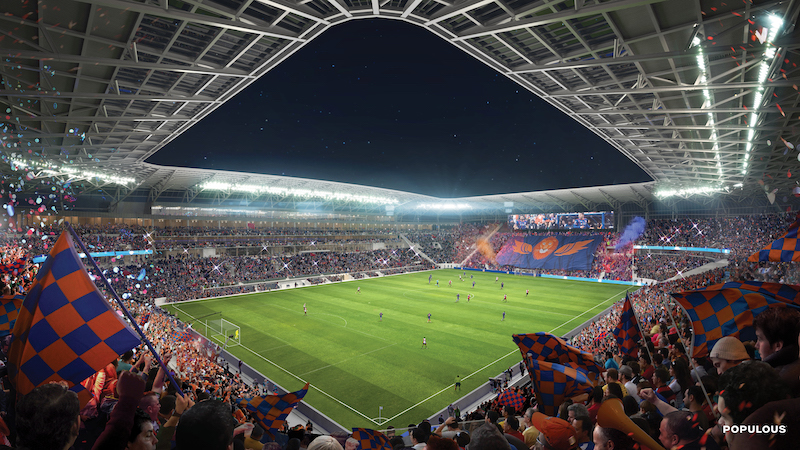
A total of six entrances will usher fans into the stadium and The Grand Staircase, which rises 30 feet from Central Parkway, will be the main entrance. Mercy Plaza, located in the southeast corner of the stadium, will provide an acre of visible, accessible community programming space between the West End and Over-the-Rhine neighborhoods.
See Also: Arenas on campuses aren’t just for sports anymore
The stadium is slated to open in March 2021.
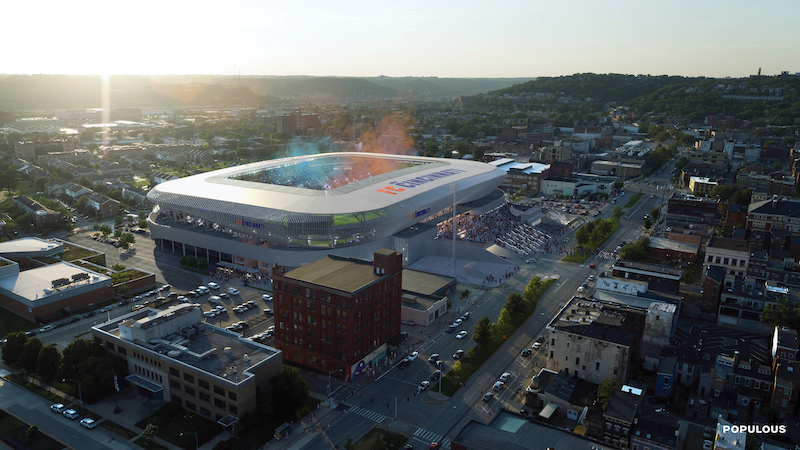
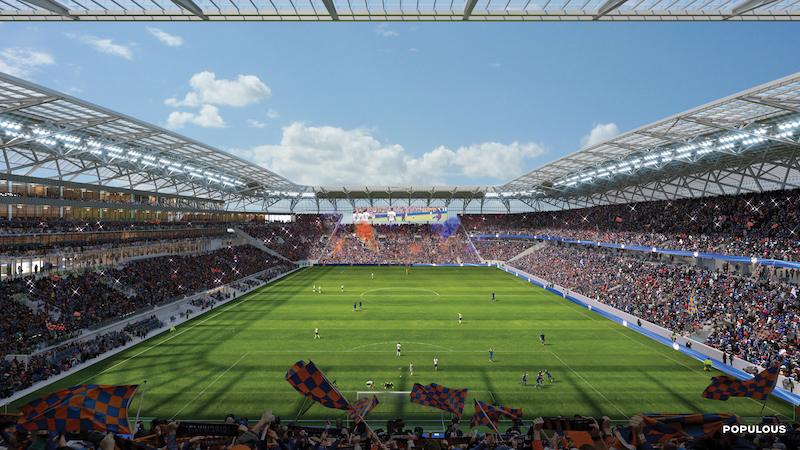
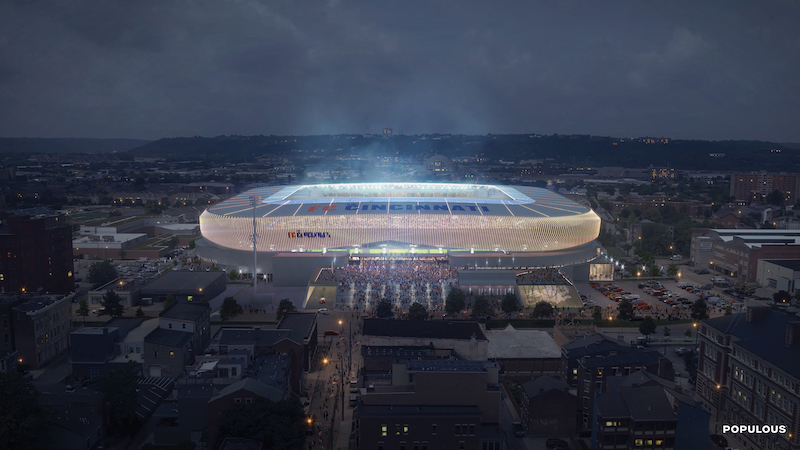
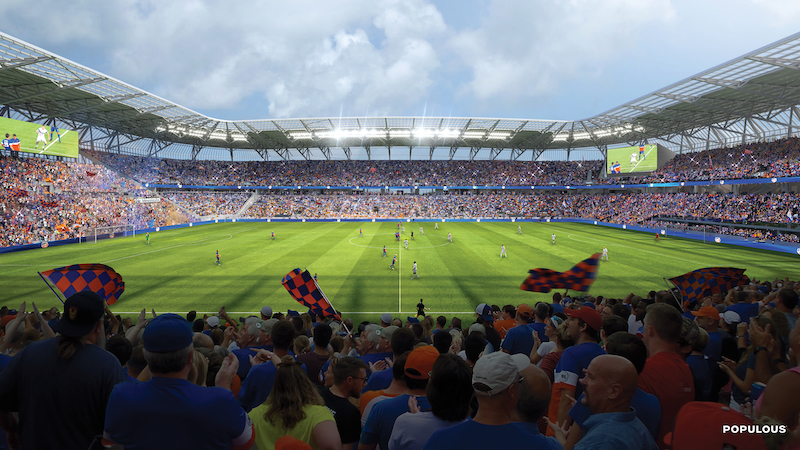
Related Stories
Mixed-Use | Feb 13, 2015
First Look: Sacramento Planning Commission approves mixed-use tower by the new Kings arena
The project, named Downtown Plaza Tower, will have 16 stories and will include a public lobby, retail and office space, 250 hotel rooms, and residences at the top of the tower.
Codes and Standards | Feb 12, 2015
New Appraisal Institute form aids in analysis of green commercial building features
The Institute’s Commercial Green and Energy Efficient Addendum offers a communication tool that lenders can use as part of the scope of work.
Transit Facilities | Feb 12, 2015
Gensler proposes network of cycle highways in London’s unused underground
Unused tube lines would host pedestrian paths, cycle routes, cultural spaces, and retail outlets.
Cultural Facilities | Feb 6, 2015
Under the sea: Manmade island functions as artificial reef
The proposed island would allow visitors to view the enormous faux-reef and its accompanying marine life from the water’s surface to its depths, functioning as an educational center and marine life reserve.
Sports and Recreational Facilities | Feb 4, 2015
Arup unveils plans for the new A.C. Milan stadium
The venue will include a modern stage for the home matches together with a hotel, sports college, restaurants, children’s playground, green areas, and spaces open to the city and dedicated to public use.
| Jan 16, 2015
Artsy lifeguard stations will brighten Toronto’s snowy beach
Five winning designs have been unveiled for lifeguard stands that will double as public space art installations on Toronto's beach.
| Jan 15, 2015
Libeskind unveils 'zig zag' plan for recreational center near Vilnius ski area
Perched on the highest peak between Vilnius' historic quarter and downtown, the Vilnius Beacon will be a hub for visiting skiers and outdoor enthusiasts.
| Jan 7, 2015
4 audacious projects that could transform Houston
Converting the Astrodome to an urban farm and public park is one of the proposals on the table in Houston, according to news site Houston CultureMap.
| Jan 5, 2015
Another billionaire sports club owner plans to build a football stadium in Los Angeles
Kroenke Group is the latest in a series of high-profile investors that want to bring back pro football to the City of Lights.
| Jan 5, 2015
Beyond training: How locker rooms are becoming more like living rooms
Despite having common elements—lockers for personal gear and high-quality sound systems—the real challenge when designing locker rooms is creating a space that reflects the attitude of the team, writes SRG Partnership's Aaron Pleskac.


